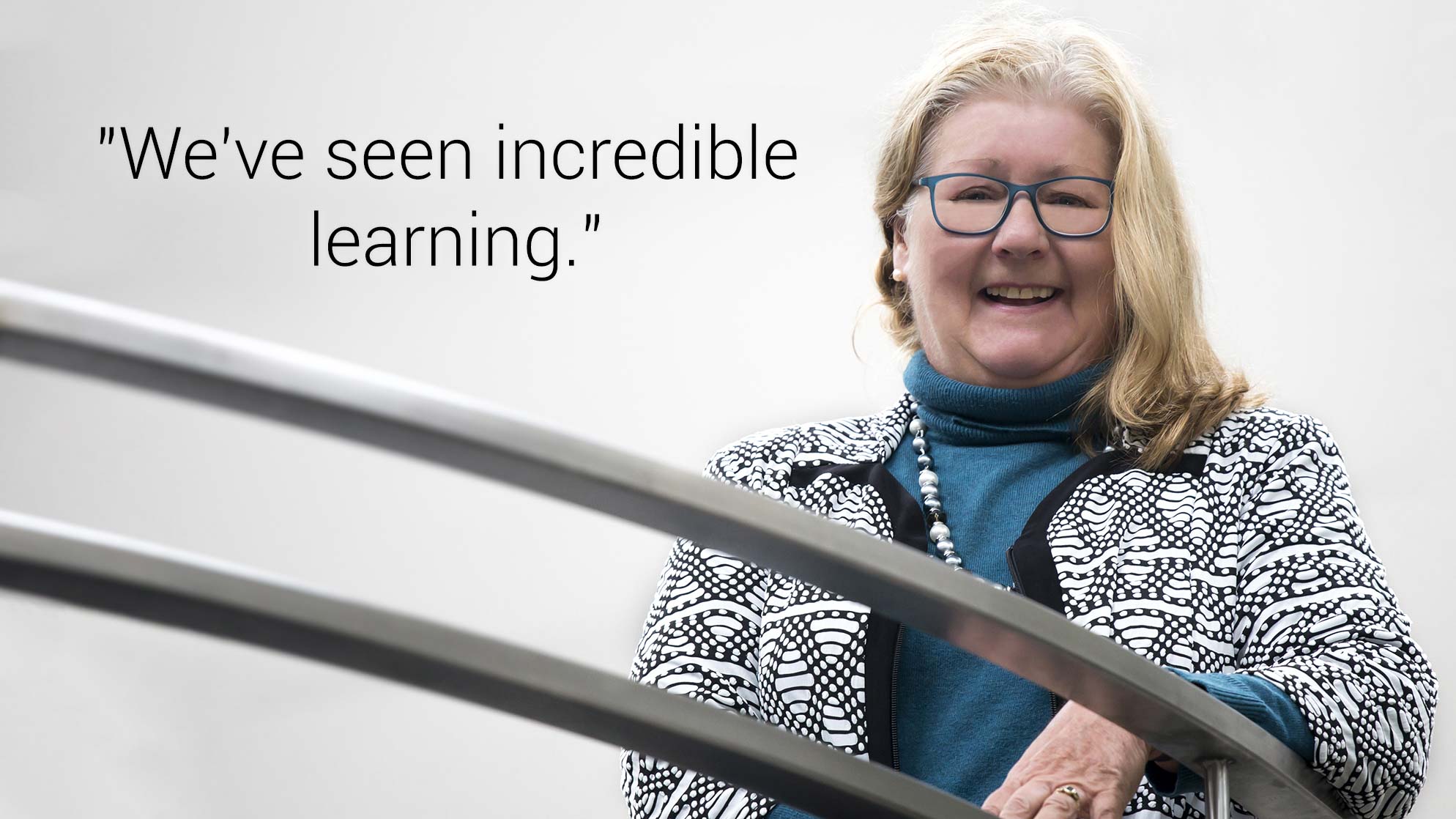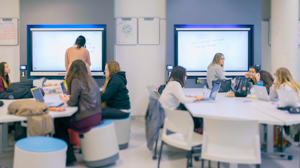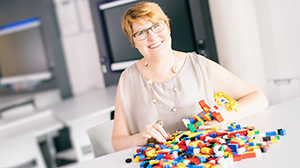

How does it feel for an adult with developmental challenges to get his or her first taste of independence?
Dr. Brenda Elias has spent five years on a longitudinal study exploring that question, focusing specifically on the Reena Community Residence just north of Toronto. The modern residence offers an inclusive home for about 65 adult tenants with challenges relating to their physical, mental or developmental health. Some have moved out of their childhood homes for the very first time.
After a long process of fundraising and planning, the building opened in 2012 and has provided a revealing study of community-building and fostering independence through a supportive, inclusive environment.
With a research grant from the University of Guelph-Humber, Dr. Elias has been there every step of the way with UofGH research assistants to interview tenants and evaluate exactly how well the residence is meeting their needs.
“I interviewed them before they moved, after they moved, and we’ve documented the last five years of social interaction,” explained Dr. Elias, who teaches in UofGH’s Family and Community Social Services program. “We’ve seen incredible learning. Many of the people hadn’t had the opportunity to use a microwave, learn how to cook or take care of their own apartment.
“They’re really excited about it.”
Residents range in age from their 20s to mid-80s. Amenities of the new apartment building include a Greenhouse and community garden, a computer room, as well as a library that doubles as a special event space with karaoke, guest speakers, movies and art programs.
Dr. Elias was delighted by many of her findings. She was surprised how many residents wanted pets, which they then nurtured with care. Other residents made friends for the very first time. Meanwhile, some others found work next door at a Longo’s grocery store or a nearby high-school cafeteria.
UofGH alumni Annelise Callisto and Amanda Neves have both been a part of Dr. Elias’s research team, and Callisto joined her in presenting the project at the Gerontological Society of America’s Annual Scientific Meeting in Washington, D.C. in 2014.
“I think my love for research grew during that time,” said Neves, who has gone on to complete a master’s degree in Social Work from the University of Toronto. “It was a very cool experience.”
Dr. Elias’s area of expertise is gerontology, or the study of aging. She pointed out that Reena’s tenants in some cases need support with respect to age-related health changes in sometimes similar and sometimes different ways than the rest of the population. As a result, this study was a sensational learning experience for her students.
“We now have more older people than younger people in Canada. The older population is growing so rapidly. So it’s so important that we’re training our students to recognize the health-care impacts on this special needs population,” Dr. Elias said.







